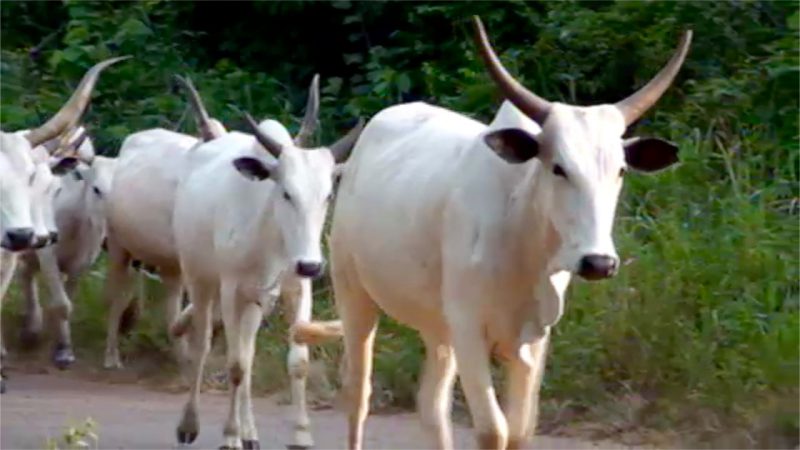Dr Aminu Nasir
In the free-market’s ideology, the ultimate purpose of a country’s law is to maximise wealth for the country’s citizens. Thus, the government in this economy will have to establish a legal framework for economic activities to occur.
This column is about the theory of a British socialist economist, a Nobel Prize winner for economics in 1991, who excelled in America among notable post-war free-market economists. Coase theorem explains how bargaining helps settle property disputes in a simple, non-technical method. When Coase presented his argument to twenty-one American economists in 1960, only one of them initially agreed. Some thought of it as economics heresy. One of the twenty who disagreed, George Stigler, a Nobel Prize winner in 1982, thought a fine economist like Coase should not make such an obvious mistake. But after explaining his argument, all the twenty-one economists from the University of Chicago, including Milton Friedman, agreed with him.
- Sallah: Edo traders make brisk business
- Remain peaceful, united with other faiths, Abiodun tells Ogun Muslims
In his explanations, Coase explicitly used a practical example of a farmer and a rancher – herdsman will be used in this column for the sake of context – to find a (Pareto) efficient market outcome. The Pareto efficiency is an optimal situation where improving any producer will be difficult without reducing the welfare of another. It is a theory that multinational corporations are applying to negotiate with consumers privately.
Before Coase’s proposition, economists across all political persuasions followed Arthur Pigou’s idea developed in the 1920s. Suppose a herd of cows were to destroy a neighbouring farmer’s crops. Pigou’s idea, a corrective tax, is a tactic for the government to stop the herdsman from letting his cattle straying on the farmland or paying a tax for being negligent. If not, the herdsman would have no incentive to stop his cattle from further damage. The anti-open grazing law by state governments in Nigeria can be thought of as the Pigouvian traditional method.
Economically speaking, this traditional approach distorts optimal choices that could attain higher production efficiency from crop production and beef production in an economy. As the liability is placed to restrain the herdsman from destroying the farmer’s crops, the welfare of the herder is overlooked. Given the reciprocal nature of this issue, the herdsman may be economically harmed by avoiding harm to the farmer. Therefore, a rational economic solution may best be achieved by avoiding the herdsmen harming farmers and vice-versa.
In a traditional approach, like applying the anti-open grazing law, economists would find that the number of cattle being reduced to a considerable amount where the herdsman can control. However, that means there will be a low supply of beef in the market, which would affect the economy. This is evident in states like Benue and Ekiti State where the cost of procuring beef was reported to have increased due to decreased supply when the law was enforced.
To mitigate such issues, Coase demonstrated a situation where a favourable outcome will prevail, without the intervention of the government, regardless of the imposed liability. Achieving this will be based on a preference between having more beef or more crops.
So long as property rights are specified and there are no transaction costs, the market can produce a desirable outcome for both parties. For example, consider a state with anti-open grazing law that made the herder liable to the farm crop damage or to build a fence on the farm. If erecting a fence is very expensive, the herdsman will prefer to pay for the occasional damaging of crops. However, suppose this had occurred in a state without any anti-open grazing laws and where property lines are not clear. The herdsman will not be legally liable for any damaged farm crops. In this case, Coase suggests the crop farmer would have to pay for fencing his farm or possibly provide some security. Suppose the cost of fencing is higher than occasional damage by the straying cattle. In that case, the farmer may have to accommodate some incursion by the straying cattle.
Ultimately, assigning property rights would determine who pays for the damage caused by the straying cattle. Regardless of legal liability for damaging crops by the straying cattle, the outcome would remain unchanged. Furthermore, considering the costs of occasional damage by straying cattle or erecting a fence, the farmer and the herdsman would agree on an outcome that will maximise the value of the output (crops and beef) their farms produced. They could also use their output’s cost and selling prices to privately reach a socially acceptable financial agreement.
Can Coase theorem work in Nigeria? It depends! The Coase theorem requires a small number of individuals to work. It is usually complicated when it involves thousands of individuals. So, in small villages with credible traditional systems and a common language and culture, it will be expected for the Coase theorem to work if property rights are assigned. However, an agreement may not be achieved due to language and cultural barriers, social conventions or even if the benefits outweigh the agreement’s transaction cost due to some peculiar strategic behaviour of parties involved. Such strategies may involve different forms of cheating, like lying, to gain an advantage in bargaining.
Implementing the Coase theorem would require the country’s legal system to establish specific rules and rights for its citizens initially, then step away from the market forces and allow deal making between individuals. But, overall, this can be an additional tool for the government to solve the farmer-herdsmen conflict, given the limited success of the anti-open grazing law.
Dr Aminu is a Senior Lecturer, Cardiff Metropolitan University

 Join Daily Trust WhatsApp Community For Quick Access To News and Happenings Around You.
Join Daily Trust WhatsApp Community For Quick Access To News and Happenings Around You.


